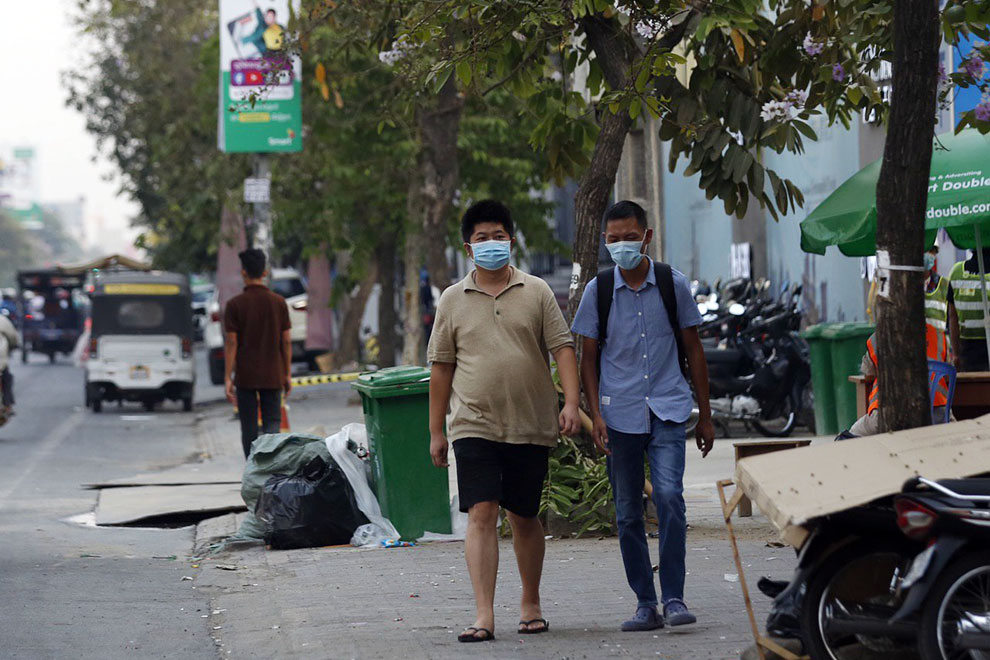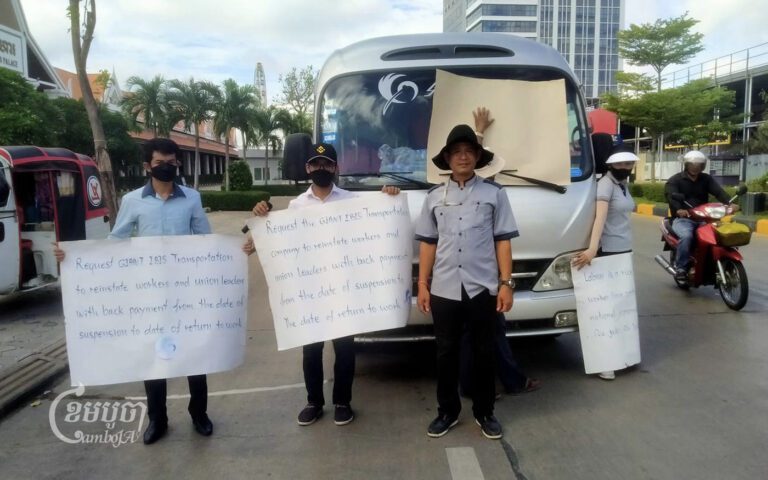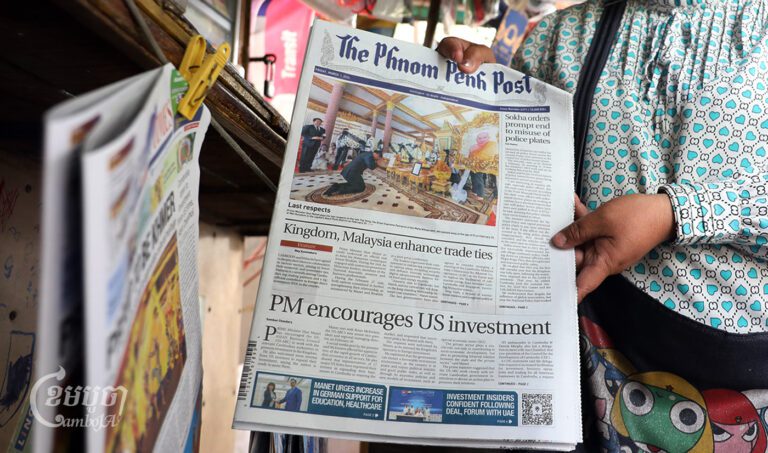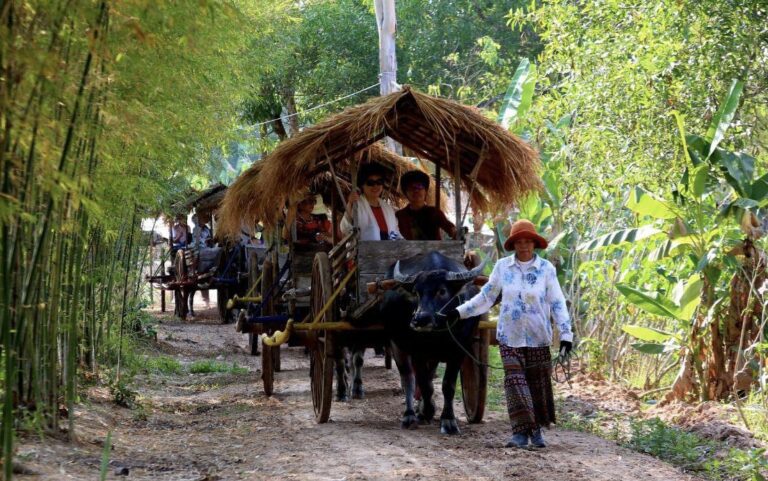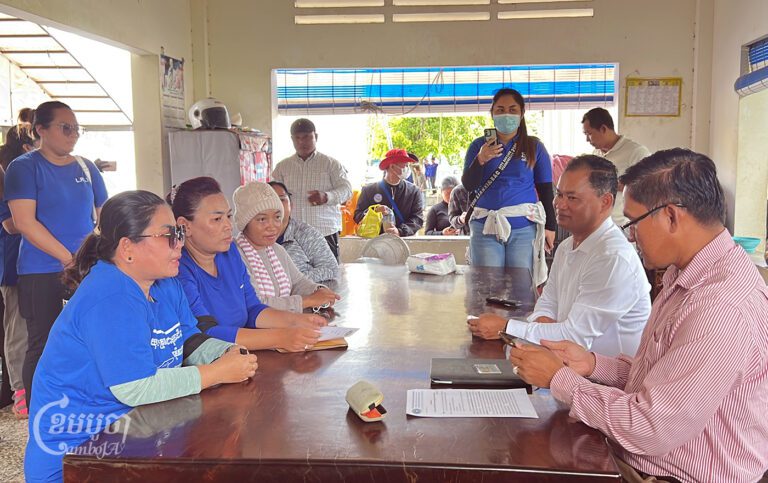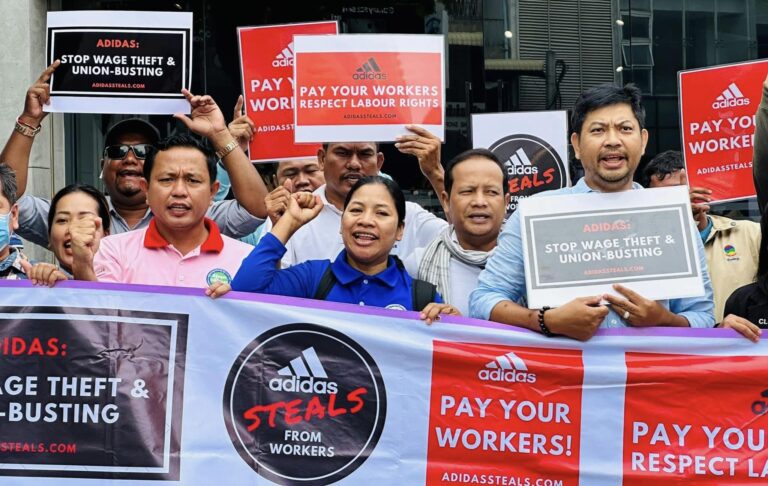Cambodia’s government has drafted a law to put the country in a state of emergency due to the coronavirus outbreak, according to Prime Minister Hun Sen, who said details would be made public on Friday but may allow authorities to “use military forces for control.”
Speaking at a press conference at the National Assembly on Monday, Hun Sen said he planned to introduce the new state of emergency law to his government this week.
“Now the draft law has been completed already, so I will lead a Council of Ministers meeting tomorrow on March 31 to review it before sending it to a meeting of the Council of Minister on Friday,” Hun Sen told reporters after a parliamentary sitting on Monday.
Hun Sen did not say what the state of emergency would entail but noted that many countries had put in place strong measures to stop the spread of Covid-19. The prime minister singled out Australia’s decision to ban gatherings of more than two people in public, as well as the use by other countries of military forces to keep public order during the pandemic.
“We do not yet have the laws that require us to place this country under a state of emergency, so a law needs to be created,” Hun Sen said. “Whether we want to do it or not, we need to have this law in hand to allow the state to implement [measures] smoothly.”
He noted that Article 22 of the Constitution says that when Cambodia faces imminent danger, the king can issue a proclamation placing the country in a state of emergency — so long as there is unanimous support from the prime minister as well as the presidents of the National Assembly and Senate. However, he said no law to implement Article 22 exists.
Without such a law, Hun Sen said, it was unclear if the government, which has in fact repeatedly issued decrees banning public gatherings to quell opposition gatherings, had the legal authority to close down parts of Cambodia or ban groups of people meeting.
The prime minister said after the law was approved by the Council of Ministers on Friday, it would be expedited through the legislative processes — going to the National Assembly and Senate for votes, before being sent to the Constitutional Council and king for approval. He said the specific details of the state of emergency would become more clear on Friday.
“We can use military forces for control when the country is in a state of emergency,” he said, adding any further details of the plan would have to wait until it was made public.
Separately, King Norodom Sihamoni and Queen Mother Norodom Monineath left overseas for “medical treatment” on Tuesday morning. In the king’s absence from the country, Senate President Say Chhum, a vice-president of Hun Sen’s long-ruling Cambodian People’s Party, acts as head of state and ordinarily takes over the king’s regular constitutional duties.
Hun Sen has repeatedly threatened government critics with imprisonment if they spread false reports of coronavirus outbreaks in Cambodia, or any information the government deems to be fake.
In his speech, Hun Sen also announced a ban on rice exports from Cambodia from Sunday to secure food security within the country, and said that casinos would be forced to close from Wednesday in response to the coronavirus pandemic. The Ministry of Finance and Economy issued a statement saying the casinos would remain closed until further notice.
Ros Phearun, the deputy director-general of the ministry’s financial industry department, said casinos would not pay tax while closed. He said the closure would impact government revenue takings and put many people out of work but that the measures were necessary.
“According to estimates, we will lose $40 million [in tax] in 2020 if we do not reopen [the casinos] this year, because we collected income from them for only three months,” Phearun said. “In total, there are 19,800 workers in the casino sector across the country.”
“For this time, we have to join to prevent Covid-19 spreading,” he said.
Hay Sopheap, a casino worker, said she welcomed the measures to protect people’s health but called for the authorities to pressure casinos to continue paying workers while closed.
“I request that the company pay salaries to staff while the casinos are temporarily suspended,” Sopheap said, explaining that she had loans and bills to pay. “I am concerned about this issue because I need to pay between $500 to $600 to the bank every month.”
Meas Nee, a prominent social and political analyst, said he believed it was positive that the government was acting to legislate the specific powers that would be available to authorities instead of continuing past habits of arbitrarily enforcing limits on public gatherings.
“We will wait to see what conditions it has because we have not seen the law yet. We will be monitoring whether this law putting in place a state of emergency will be carried out with equality, or carried out only on one group of people or political parties,” Nee said.
Nee added that he hoped the government was willing to take some unpalatable measures in the short term to ensure the longer-term survival of Cambodia’s economic base.
“The government should suspend the garment and footwear factories, because if we suspend them, we will lose some benefit for a short time — but if Covid-19 starts spreading inside the factories, it will have a big effect,” Nee said.
He suggested financial support from the government for those struggling to make ends meet could make such measures more popular, following on the example of other countries.
As of Tuesday morning, Cambodia had 109 confirmed cases of Covid-19, with a 39-year-old mother and her two-year-old son from Siem Reap province being the latest reported to be infected. Both were infected by the woman’s husband, who had travelled to Malaysia for a religious gathering earlier this month that led to hundreds falling ill from the virus.


